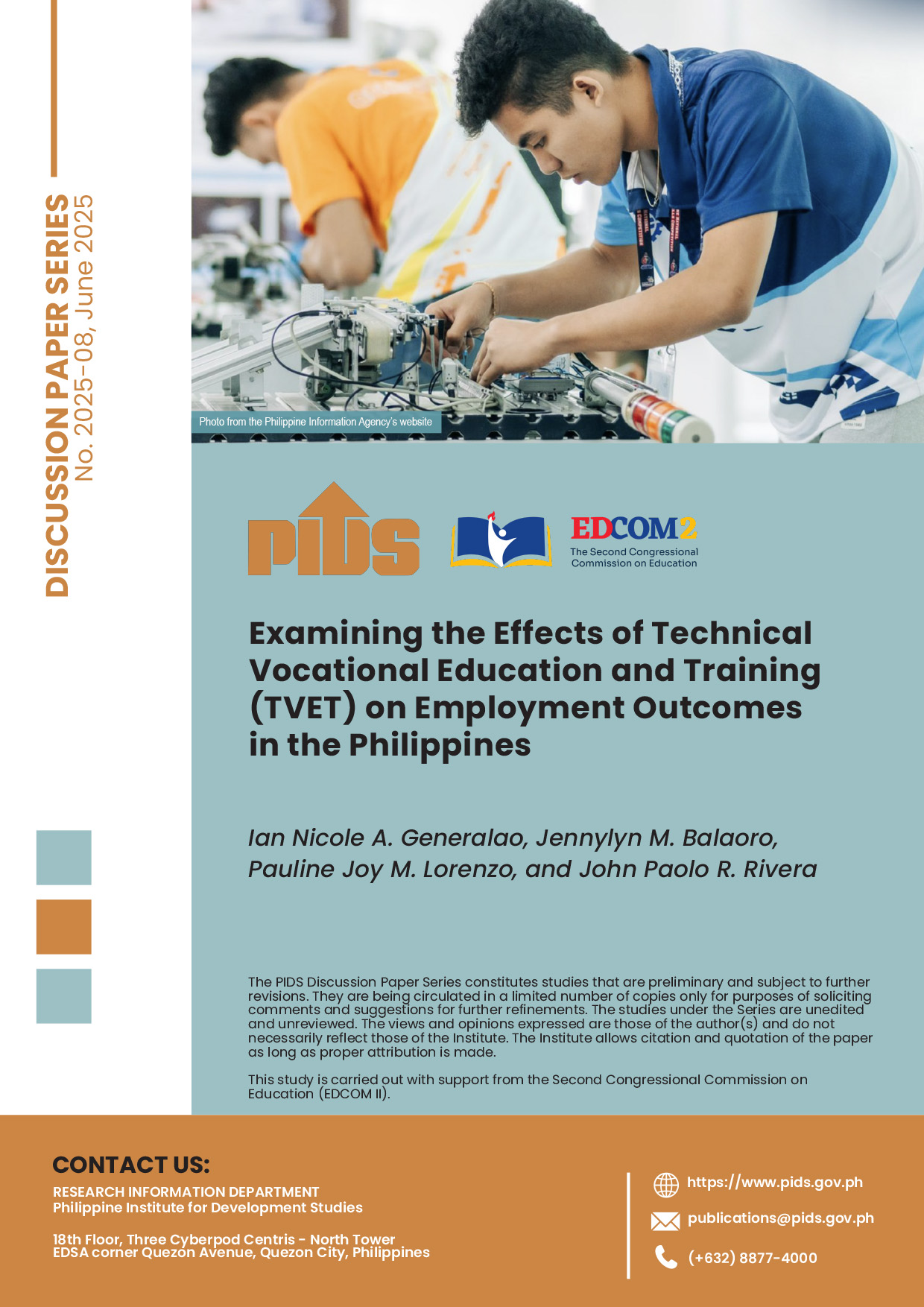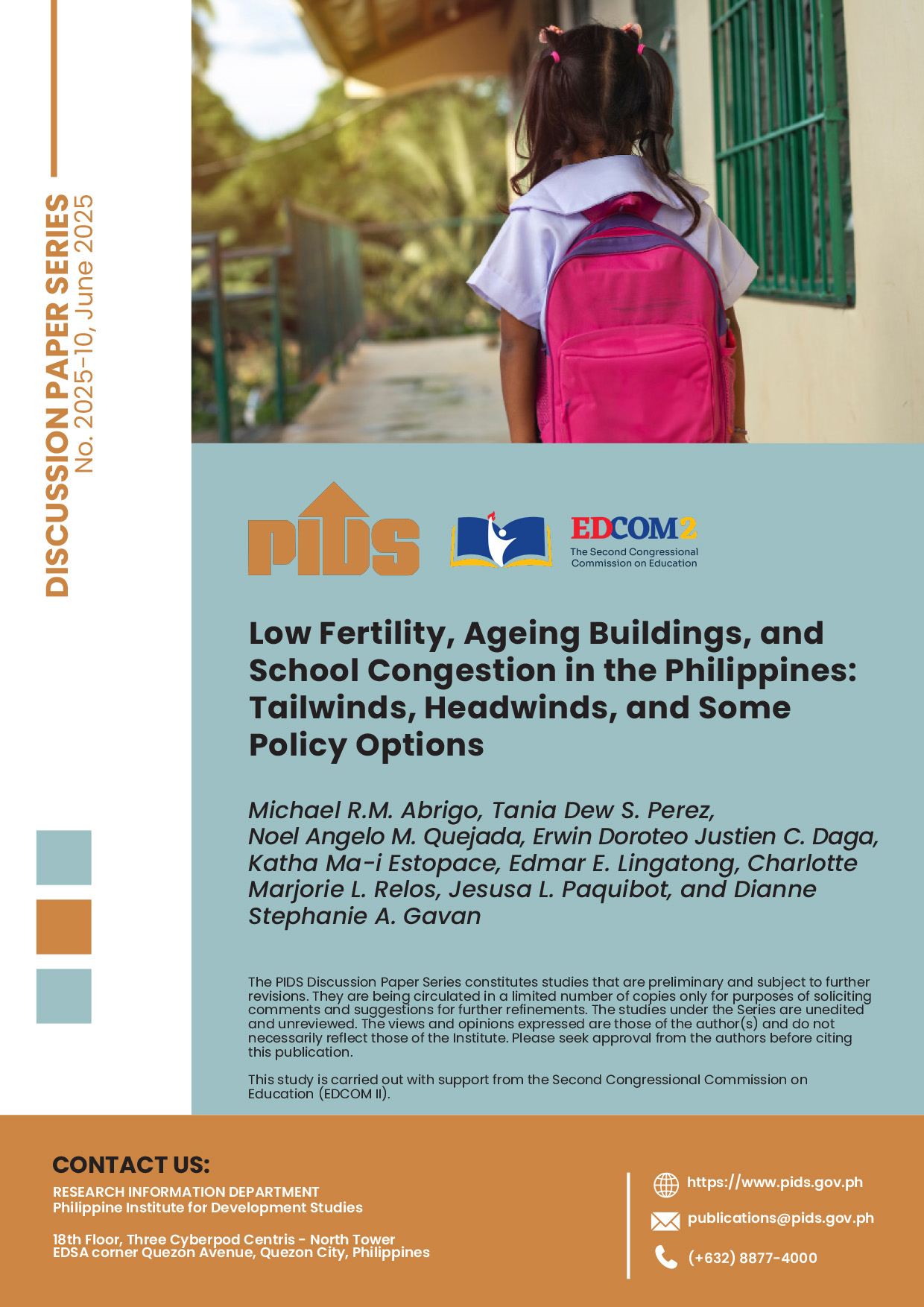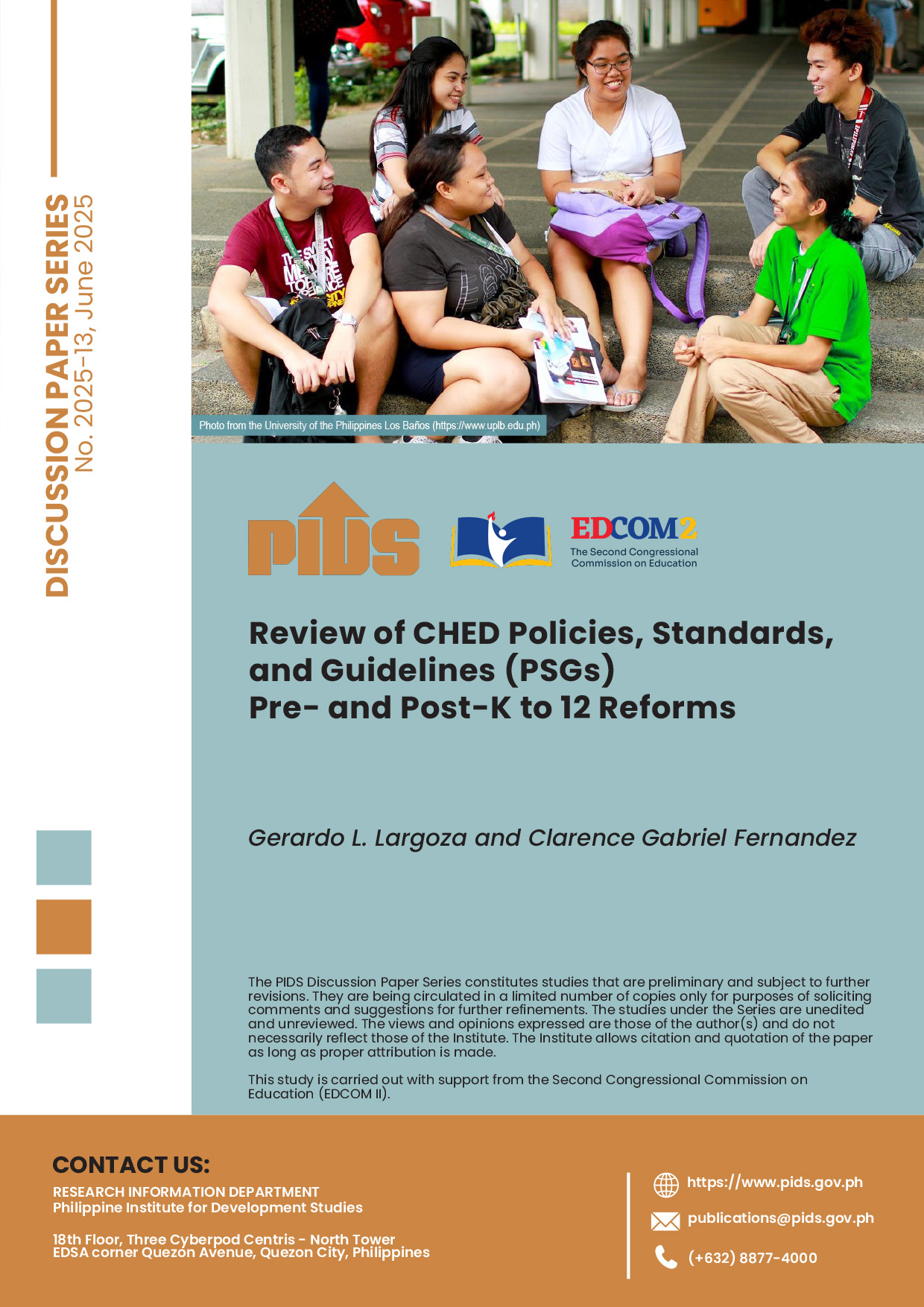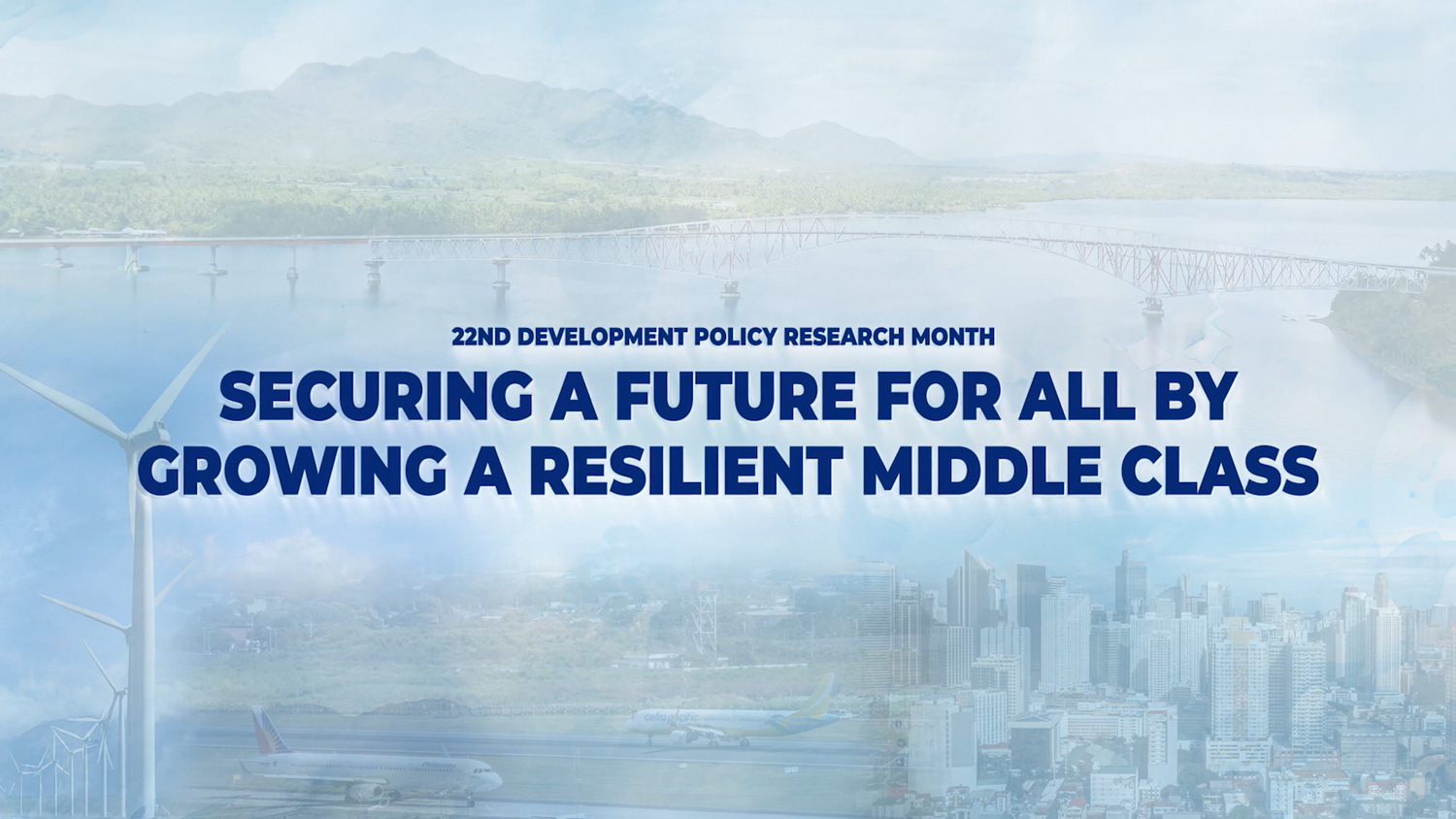The Philippines has taken a landmark step to address long-standing gaps in early childhood development with the signing of Republic Act No. 12199, or the Early Childhood Care and Development (ECCD) System Act, a new law aimed at improving education, nutrition, and health outcomes for children from birth to age five.
Signed into law on May 8, 2025, the ECCD System Act comes in response to years of alarming data on the well-being of Filipino children, most notably from the study “Behind the Slow Start: An Assessment of Early Childhood Care and Development in the Philippines,” authored by Dr. Valerie Gilbert T. Ulep and his team at the Philippine Institute for Development Studies (PIDS) in collaboration with the Second Congressional Commission on Education (EDCOM II).
“This legislation marks a crucial step in ensuring that every Filipino child has the support and opportunities they need to thrive,” said Ulep, senior research fellow at PIDS. “It is a powerful reminder of what we can achieve when evidence guides our decisions.”
ECCD Crisis
The PIDS study paints a sobering picture: millions of Filipino children are not reaching their full development potential due to persistent malnutrition, poor access to quality pre-primary education, and fragmented government services.
Nearly one in three Filipino children under age five is stunted, a sign of chronic malnutrition that limits cognitive development, impairs school performance, and undermines future productivity. Despite economic growth, stunting in the country has declined at just 1% annually over the past 30 years, far slower than in neighbors like Vietnam and China.
The economic toll of this malnutrition is staggering, with an estimated annual cost of PHP 174.4 billion due to lost productivity and healthcare needs.
At the same time, nine out of 10 children are unable to read proficiently by the end of primary school, a crisis of learning poverty that places the Philippines among the poorest performers in Southeast Asia. In 2022, only 20% of children aged 3 to 4 were enrolled in pre-kindergarten, and just 23% accessed government feeding programs.
Participation in early education is marked by extreme inequality. Children from wealthy households are more likely to attend daycare centers, receive better nutrition, and perform well on cognitive tests. In contrast, poor children suffer from lower access, fewer learning opportunities at home, and worse health outcomes from birth.
“This is not just a developmental issue, it is a moral one,” Ulep said. “These inequities entrench intergenerational poverty.”











